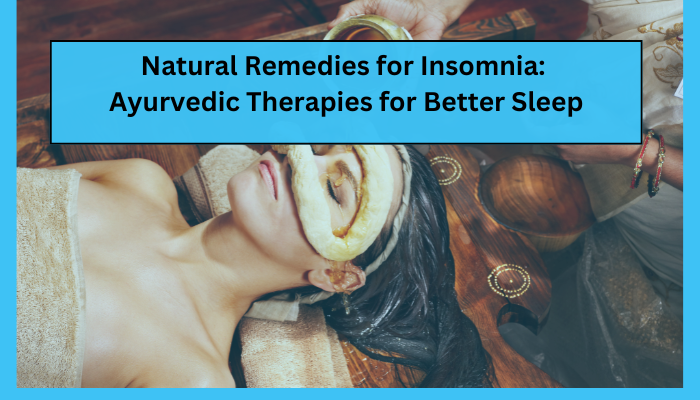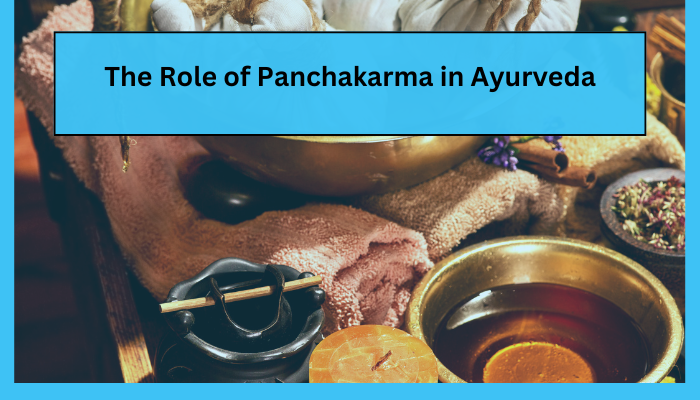Natural Remedies for Insomnia: Ayurvedic Therapies for Better Sleep
Insomnia affects millions, impacting daily life, mental health, and overall well-being. Poor sleep can lead to fatigue, difficulty concentrating, and irritability. Over time, it increases the risk of health issues like anxiety, depression, and weakened immunity.
Ayurveda offers natural remedies that focus on restoring balance in the body. Unlike many sleep treatments, Ayurveda targets the root causes of insomnia or the Individual’s dosha imbalance. Ayurveda promotes restful sleep without relying on medication through herbal therapies, calming routines, and dietary adjustments. This includes body massage (Abhyanga), head massage (Shiroabhyanga), and medicated oils and pastes to promote relaxation and sleep ResearchGate.
Shivam Superspeciality Hospital is known for its expertise in Ayurvedic sleep therapies. With a dedicated team of Ayurvedic experts, Shivam provides holistic Ayurvedic treatments in Jaipur to improve sleep and restore energy.
Understanding Sleep in Ayurveda
In Ayurveda, sleep is critical in maintaining physical and mental health. It rejuvenates the body, balances hormones, and clears the mind. Sleep quality directly depends on the balance of the three doshas—Vata, Pitta, and Kapha:
- Vata Imbalance: Causes light, restless sleep with frequent waking and racing thoughts.
- Pitta Imbalance: Leads to difficulty falling asleep due to overthinking and heat in the body, often causing one to wake up in the middle of the night.
- Kapha Imbalance: Creates excessively heavy sleep, making it hard to wake up feeling refreshed, often leading to grogginess.
Ayurveda also introduces the concept of Ojas—the body’s vital energy reserve that supports immunity and mental clarity. Good sleep builds and sustains Ojas, while poor sleep depletes it, leading to fatigue, mood swings, and lower resistance to stress and illness.
Ayurveda aims to resolve insomnia naturally by restoring dosha balance and enhancing Ojas, improving sleep quality and overall health.
Ayurvedic Therapies for Insomnia
Ayurveda provides several targeted therapies for managing insomnia. These therapies address the root causes by calming the mind, balancing the doshas, and preparing the body for quality sleep:
Herbal Remedies:
Ayurveda utilises a range of herbal medicines known for their sedative properties to manage insomnia IJAPR.
- Ashwagandha (Withania Somnifera): Reduces cortisol (stress hormone), calming the body and preparing it for restful sleep.
- Brahmi (Bacopa Monnieri): Lowers anxiety, improves focus, and calms mental restlessness, making it easier to fall asleep.
- Shankhpushpi (Convolvulus Pluricaulis): Relaxes the nervous system, reducing stress and balancing sleep patterns.
- Jatamansi (Nardostachys Jatamansi): Eases nervous tension and mental agitation, helping the mind unwind at bedtime.
- Chamomile Tea: Mild soothing effect that calms nerves and relieves mild anxiety, aiding sleep onset.
- Nutmeg Powder: Contains trace sedative compounds that promote sleep quality when used in small amounts.
- Valerian Root: Natural sedative that helps with falling asleep and prevents frequent waking during the night.
- Passionflower Extract: Calms, the mind, reduces anxiety, and promotes deeper, uninterrupted sleep.
- Saffron Strands: Lowers mild depression and anxiety, improving sleep duration and quality.
- Holy Basil (Tulsi): Reduces stress hormones, calming the mind and body to support sleep readiness.
Therapies-
- Abhyanga (Oil Massage): Full-body warm oil massage that calms nerves, boosts blood flow, and eases muscle tension; ideal for Vata balance.
- Shirodhara Therapy: Warm oil poured on the forehead to reduce stress, calm anxiety, relieve headaches, and soothe mental tension.
- Nasya Treatment: Herbal oils are applied to nasal passages to clear sinuses, enhance focus, and reduce mental stress.
- Pada Abhyanga (Foot Massage): Foot massage that reduces stress, improves sleep and balances Vata by enhancing circulation.
- Oil Pulling: Detoxifies the mouth boosts oral health and supports body balance.
- Head Massage: Relieves head tension, reduces headaches, and improves blood flow for mental relaxation.
- Marma Therapy: Activates specific energy points to relieve stress, improve circulation, and balance emotions.
- Sound Therapy: Uses calming sounds to reduce stress and promote mental relaxation, aiding in sleep.
Yoga for Relaxation:
Certain yoga poses are beneficial for reducing insomnia.
- Balasana (Child’s Pose): Releases tension in the back, shoulders, and neck, easing the body into a state of calm.
- Viparita Karani (Legs-Up-the-Wall Pose): Reduces stress and promotes blood flow to the brain, helping with mental relaxation.
- Shavasana (Corpse Pose): Deeply relaxes every muscle in the body, preparing it for restful sleep.
- Pranayama Exercises: Breathing techniques that reduce anxiety, calm the mind, and promote relaxation.
Meditation Techniques:
Ayurveda encourages meditation to quiet the mind.
- Mindfulness Meditation: Focuses on slow breathing and awareness, helping to release worry and stress.
- Guided Visualisation: Uses calming imagery to soothe the mind, making it easier to drift off.
- Alternate Nostril Breathing (Nadi Shodhana): Balances energy in the body and promotes mental calmness, easing the transition to sleep.
- Evening Meditation: Clears mental clutter, lowers stress, and prepares the mind and body for restful sleep.
These Ayurvedic therapies work together to create a natural, restful sleep experience, addressing both mental and physical aspects of insomnia for long-term relief IJAPR.
Ayurveda-Approved Dietary Recommendations for Better Sleep
In Ayurveda, the right foods and meal timing can significantly improve sleep quality. Here’s a clear guide:
Sleep-Promoting Foods:
- Warm Milk with Nutmeg: A cup of warm milk with a pinch of nutmeg before bed relaxes the mind. Nutmeg has mild sedative properties, making it effective for sleep.
- Almonds and Walnuts: High in magnesium, these nuts support muscle relaxation and contain melatonin, which helps regulate sleep.
- Bananas: Rich in magnesium and potassium, bananas reduce muscle tension and prepare the body for rest.
Foods to Avoid Before Bed:
- Spicy Foods: Spicy meals stimulate Pitta, causing heartburn or restlessness that disrupts sleep.
- Caffeine: Avoid tea, coffee, and chocolate after lunch. Caffeine stimulates the nervous system, making it harder to fall asleep.
- Sugary Foods: High-sugar snacks create blood sugar spikes and crashes, waking you up at night.
Nighttime Routine for Better Sleep:
- Eat Early: Finish dinner 2–3 hours before bed to aid digestion and prevent discomfort during sleep.
- Herbal Teas: Chamomile or tulsi tea calms the mind. Tulsi specifically balances Vata, reducing anxiety and restlessness.
- Golden Milk: A mix of warm milk, turmeric, and honey boost Ojas, vital energy, and help the body transition into deep sleep.
Following these Ayurvedic dietary practices helps calm the mind, supports digestion, and balances the body for restful, uninterrupted sleep.
Lifestyle Adjustments for Improved Sleep
Ayurveda focuses on specific habits that improve sleep quality and keep doshas balanced, supporting steady sleep cycles.
Daily Routine (Dinacharya)
- Set Sleep Times: Going to bed and waking up at the same time daily stabilises the circadian rhythm, helping you fall asleep and wake up naturally. Ayurveda recommends sleeping by 10 p.m. and rising with sunrise.
- Pre-Bed Relaxation: In the hour before bed, avoid screens and high-energy tasks. Opt for calming activities like reading, stretching, or deep breathing, which signal the body to slow down and prepare for rest.
Environmental Considerations
- Dark, Quiet Room: A dark, quiet, cool room promotes deep sleep. Keeping your space organised and clutter-free also reduces mental distractions for better sleep.
- Soothing Scents: Essential oils like lavender, sandalwood, or chamomile help relax the mind, balance Vata dosha, and relieve anxiety, making it easier to unwind.
- Supportive Bedding: Soft, natural sheets and a comfortable mattress support your body, prevent sleep interruptions, and promote longer, uninterrupted rest.
- Adjust Lighting and Temperature: Dim lights and maintain a cool room temperature in the evening to support melatonin production, helping with sleep onset and stability.
Evening Rituals
- Oil Massage (Abhyanga): Massage your feet or head with warm sesame oil to relax muscles, soothe nerves, and prepare for sleep.
- Warm Bath or Shower: A warm bath or shower reduces tension and calms the body, signalling it's time for rest and supporting a smooth sleep cycle.
These Ayurvedic practices align with the body’s natural rhythms, helping you fall asleep, stay asleep, and wake refreshed.
Role of Panchakarma in Treating Insomnia
Panchakarma offers a powerful Ayurvedic approach to insomnia by targeting deep-seated imbalances that disrupt sleep.
Detox and Dosha Balance:
- Virechana (Purgation) helps remove excess Pitta, cooling the body and calming mental restlessness.
- Basti (Enema Therapy) addresses Vata imbalances linked to anxiety and overthinking, clearing digestive pathways to support relaxation.
Relaxation Techniques:
- Shirodhara: A steady stream of warm oil on the forehead deeply relaxes the mind, easing stress and promoting sleep.
- Nasya (Nasal Therapy): Medicated oils cleanse toxins in the head, reducing congestion and mental fog, both of which hinder sleep.
Restoring Vital Energy:
- Panchakarma rebuilds Ojas (vital energy) and balances Agni (digestive fire), creating a foundation for restful, rejuvenating sleep.
Panchakarma’s detox and rebalancing therapies address insomnia at its core, promoting natural, lasting sleep.
Conclusion
Ayurvedic therapies offer a holistic, natural solution for insomnia by addressing the root causes rather than just the symptoms. Through targeted herbal remedies, lifestyle changes, and therapies like Shirodhara and Panchakarma, Ayurveda restores balance in the body, promoting deep, restful sleep.
Shivam Superspeciality Hospital in Jaipur is a trusted provider of Ayurvedic treatments. Our Ayurvedic experts combine authentic Ayurvedic practices with expert care. The hospital's personalised approach, focusing on each patient’s unique needs, helps people find effective, long-term relief from sleep issues.
Shivam Superspeciality Hospital provides a path to better sleep and overall wellness through Ayurveda’s timeless wisdom for those struggling with insomnia. Schedule your appointment with our Ayurvedic experts now to know more.
















